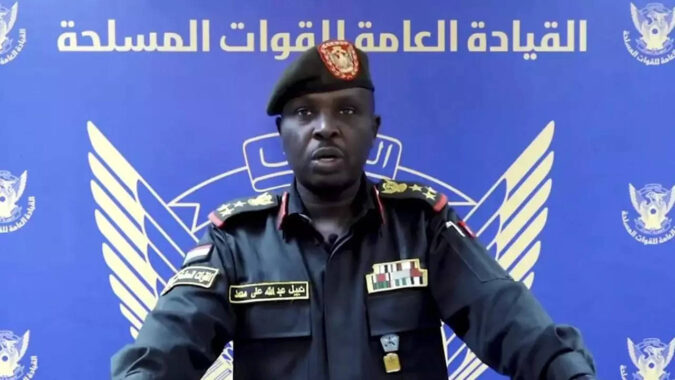KHARTOUM: Sudan‘s regular army warned Thursday that the country was at a “dangerous… turning point” after paramilitaries deployed more fighters in major cities amid a deepening rift within the military government.
Military leader Abdel Fattah al-Burhan has increasingly been at odds with his number two, paramilitary commander Mohamed Hamdan Daglo, during talks to finalise a deal to return the country to civilian rule and end the crisis sparked by their 2021 coup.
A plan to integrate the paramilitary Rapid Support Forces led by Daglo into the regular army led by Burhan is one of the key points of contention, analysts have said.
Eleventh-hour haggling within the security forces over the details has twice forced the postponement of the signing of an agreement with civilian factions setting out a roadmap for the transition.
In its statement, the regular army said it was “sounding the alarm as the country is at a dangerous historical turning point”.
“The risks are increasing as the RSF command mobilised and spread forces in the capital and other cities,” the army said.
It said the deployment, which “took place without the approval of, or even just coordination with, the armed forces command” has “exacerbated security risks and increased tensions among security forces”.
The RSF defended its deployment, saying it works in coordination with the regular army and its fighters “move throughout the country to achieve security and stability”.
Created in 2013, the RSF emerged from the Janjaweed militia that then-President Omar al-Bashir unleashed against non-Arab ethnic minorities in the western Darfur region a decade earlier, drawing accusations of war crimes.
In recent months, Daglo has said the 2021 coup was a “mistake” that failed to bring about change in Sudan and reinvigorated remnants of Bashir‘s regime, which was ousted by the army in 2019 following a month of mass protests.
Burhan, a career soldier from northern Sudan who rose to the ranks under Bashir’s three-decade rule, maintained that the coup was “necessary” to bring more groups into the political process.
Military leader Abdel Fattah al-Burhan has increasingly been at odds with his number two, paramilitary commander Mohamed Hamdan Daglo, during talks to finalise a deal to return the country to civilian rule and end the crisis sparked by their 2021 coup.
A plan to integrate the paramilitary Rapid Support Forces led by Daglo into the regular army led by Burhan is one of the key points of contention, analysts have said.
Eleventh-hour haggling within the security forces over the details has twice forced the postponement of the signing of an agreement with civilian factions setting out a roadmap for the transition.
In its statement, the regular army said it was “sounding the alarm as the country is at a dangerous historical turning point”.
“The risks are increasing as the RSF command mobilised and spread forces in the capital and other cities,” the army said.
It said the deployment, which “took place without the approval of, or even just coordination with, the armed forces command” has “exacerbated security risks and increased tensions among security forces”.
The RSF defended its deployment, saying it works in coordination with the regular army and its fighters “move throughout the country to achieve security and stability”.
Created in 2013, the RSF emerged from the Janjaweed militia that then-President Omar al-Bashir unleashed against non-Arab ethnic minorities in the western Darfur region a decade earlier, drawing accusations of war crimes.
In recent months, Daglo has said the 2021 coup was a “mistake” that failed to bring about change in Sudan and reinvigorated remnants of Bashir‘s regime, which was ousted by the army in 2019 following a month of mass protests.
Burhan, a career soldier from northern Sudan who rose to the ranks under Bashir’s three-decade rule, maintained that the coup was “necessary” to bring more groups into the political process.
